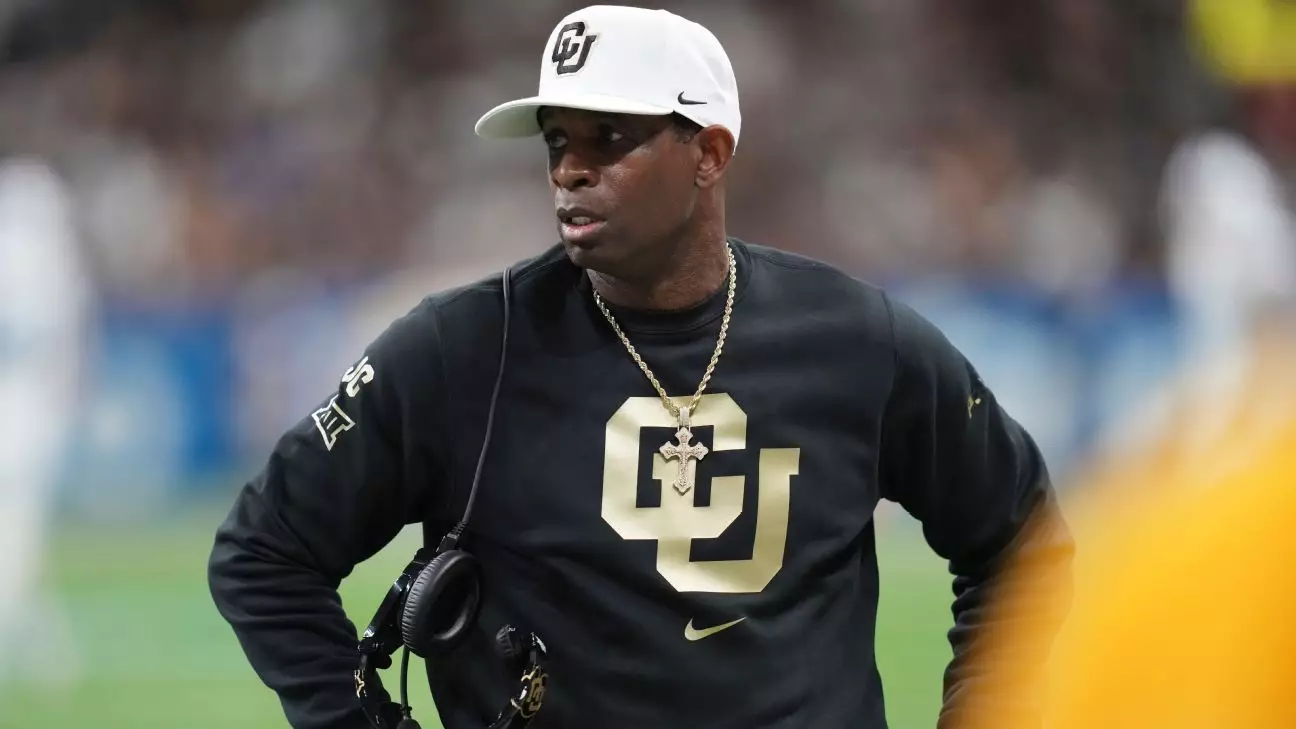In the world of sports, few personalities shine as brightly as Deion Sanders. Known for his unmatched charisma and extraordinary talent on the football field, Sanders has carved a unique niche for himself in the world of coaching. Recently, his decision to remain as head coach at the University of Colorado, despite significant interest from the Dallas Cowboys for their head coaching vacancy, has ignited fresh discussions about his coaching philosophy and future prospects. This article delves into Sanders’ coaching approach, his reflections on the NFL, and the complex nature of his professional aspirations.
Despite the allure of returning to the NFL, Sanders has opted to stay at Colorado, a decision that speaks volumes about his commitment to college football. In his recent talk show, “We Got Time Today,” he revealed the challenges he perceives in coaching at the professional level. Sanders expressed concerns over the intensity and approach of NFL training practices, noting that the current style differs greatly from what he experienced during his playing days. This sentiment reflects a possible aversion to what he describes as an overly intense environment, suggesting that personal values about player welfare and enjoyment of the game may take precedence over monetary and career opportunities.
Sanders’ current record of 13-12 at Colorado, which includes a successful 9-4 season, demonstrates that he is building a foundation for success at the collegiate level. Further underscoring his commitment to the university is the Heisman Trophy win for cornerback and wide receiver Travis Hunter, a testament to Sanders’ ability to attract talent and make a significant impact in a short time. This indicates a focused vision on development, rather than seeking immediate gratification in the professional realm.
Reflecting on his time with the Cowboys, Sanders nostalgically recounted the intense practices shared with NFL teammates like Troy Aikman. However, he has also pointed out a stark contrast with today’s practices, suggesting a fundamental shift in the culture of professional football that does not align with his coaching ethos. This recognition that he does not want to compromise his principles for a higher profile job reveals a growing understanding of himself as a leader and mentor.
During his time in the NFL, Sanders commanded respect and attention, enabling a unique leadership dynamic. Aikman, his former teammate, acknowledged that Sanders would have made a compelling head coach for the Cowboys, stating that his presence would instill confidence in the organization. Nonetheless, the lack of an official interview for Sanders raises questions about the decision-making processes within the Cowboys organization and hints at potential mismanagement by team owner Jerry Jones. Aikman’s disappointment over the missed opportunity signifies a broader sentiment among fans and analysts who believe Sanders could have positively influenced the Cowboys’ culture.
As Sanders reflects on his past and present decisions, he remains steadfast in his belief that coaching must harmonize with personal values. His refusal to pursue an NFL opening, despite his decorated history, suggests a desire for fulfillment that prioritizes player connections, mentorship, and long-term growth over fleeting fame and financial gain. This distinction between the allure of the NFL and the genuine relationships nurtured at the college level showcases Sanders’ unique philosophy on leadership and coaching.
Ultimately, Sanders’ trajectory remains captivating. His recent commentary on coaching reflects an individual in tune with his goals and aspirations, comfortable with the role he is playing at Colorado. As debates surrounding his future continue to unfold, it is apparent that Sanders’ commitment to his players and philosophical approach to coaching set him apart in an industry often plagued by transience and relentless ambition.
Deion Sanders stands at a crossroads—balancing the professional allure of the NFL with a profound dedication to the future of college athletes. His journey invites scrutiny and admiration alike as he forges a path that not only uplifts young athletes but also reinforces his legacy both as a player and a coach. Only time will tell where Sanders’ journey will lead him next, but his current stance is a compelling narrative in the ever-evolving landscape of sports coaching.


Leave a Reply